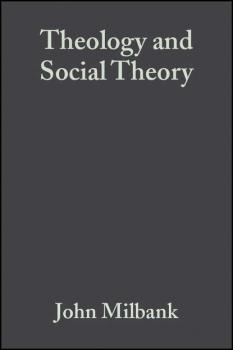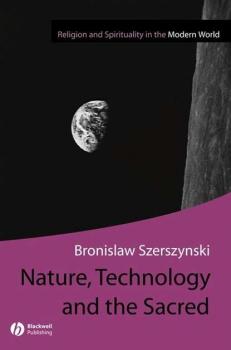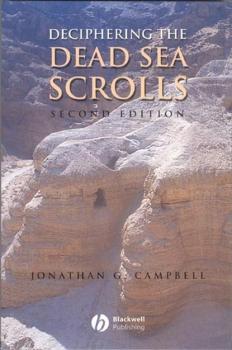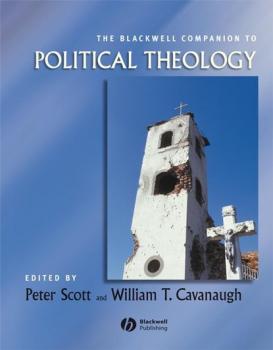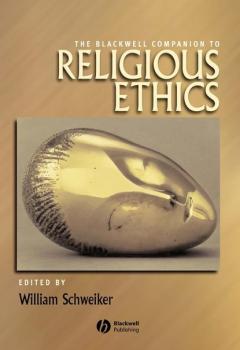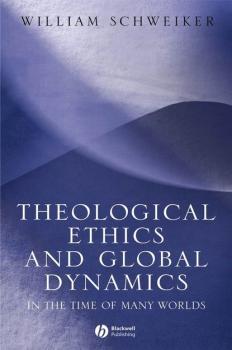Зарубежная эзотерическая и религиозная литература
Различные книги в жанре Зарубежная эзотерическая и религиозная литератураTheology and Social Theory
This is a revised edition of John Milbank’s masterpiece, which sketches the outline of a specifically theological social theory. The Times Higher Education Supplement wrote of the first edition that it was “a tour de force of systematic theology. It would be churlish not to acknowledge its provocation and brilliance”. Featured in The Church Times “100 Best Christian Books" Brings this classic work up-to-date by reviewing the development of modern social thought. Features a substantial new introduction by Milbank, clarifying the theoretical basis for his work. Challenges the notion that sociological critiques of theology are ‘scientific’. Outlines a specifically theological social theory, and in doing so, engages with a wide range of thinkers from Plato to Deleuze. Written by one of the world’s most influential contemporary theologians and the author of numerous books.
The State of the University
In this book, controversial and world-renowned theologian, Stanley Hauerwas, tackles the issue of theology being sidelined as a necessary discipline in the modern university. It is an attempt to reclaim the knowledge of God as just that – knowledge. Questions why theology is no longer considered a necessary subject in the modern university, and explores the role it should play in the development of our “knowledge” Considers how theology is often excluded from the knowledges of the modern university because these are constituted by an understanding of time necessary to make economic and state realities seem inevitable Argues that it is precisely this difference that makes Christian theology an essential resource for the university to achieve its task – that is, to form people who are able to imagine a different world through critical and disciplined reflection Challenges the domesticated character of much recent theology by suggesting how prayer and the love of the poor are essential practices that should shape the theological task Converses with figures as diverse as Luigi Giussani, David Burrell, Stanley Fish, Wendell Berry, Jeff Stout, Rowan Williams and Sheldon Wolin Published in the new and prestigious Illuminations series.
The Blackwell Companion to the Bible and Culture
The Blackwell Companion to the Bible and Culture provides readers with a concise, readable and scholarly introduction to twenty-first century approaches to the Bible. Consists of 30 articles written by distinguished specialists from around the world Draws on interdisciplinary and international examples to explore how the Bible has impacted on all the major social contexts where it has been influential – ancient, medieval and modern, world-wide Gives examples of how the Bible has influenced literature, art, music, history, religious studies, politics, ecology and sociology Each article is accompanied by a comprehensive bibliography Offers guidance on how to read the Bible and its many interpretations
Nature, Technology and the Sacred
This provocative and timely book argues that contemporary ideas and practices concerning nature and technology remain closely bound up with religious ways of thinking and acting. Using examples from North America, Europe and elsewhere, it reinterprets a range of 'secular' phenomena in terms of their conditioning by a complex series of transformations of the sacred in Western history. The contemporary practices of environmental politics, technological risk behaviour, alternative medicine, vegetarianism and ethical consumption take on new significance as sites of struggle between different sacral orderings. Nature, Technology and the Sacred introduces a radically new direction for today's critical discourse concerning nature and technology – one that reinstates it as a moment within the ongoing religious history of the West.
Jesus and the Judaism of His Time
The main aim of this work is to understand Jesus as he saw himself, and to compare that self-understanding with the ways in which others have grasped the nature of his mission.
Deciphering the Dead Sea Scrolls
The second edition of this fascinating book is the ideal introduction to the importance of the Dead Sea Scrolls from Qumran and their impact on our understanding of the rise of Christianity. Introduces the Qumran Scrolls to the uninitiated general reader. Explains how revolutionary the discovery of the Scrolls was and their enduring significance. Sets the Scrolls within the wider context of Jewish history and religion of the second temple period. Now expanded to include additional material about the scrolls themselves and recent theories about the community behind them. This book is not available from Blackwell in the United States and the Philippines.
Religion and the Human Future
This powerful manifesto outlines a vision called theological humanism based on the idea that that the integrity of life provides a way to articulate the meaning of religion for the human future. Explores a profound quest to understand the meaning and responsibility of our shared and yet divided humanity amidst the uncertainty of modern society Articulates the idea that human beings are mixed creatures striving for integrity not only trying to conform to God's will Sets forth a dynamic and robust vision of human life beyond the divisions that haunt the humanities, social sciences, theology, and religious studies
The Blackwell Companion to Political Theology
Written by a team of international experts, drawn from various traditions of political theology, this outstanding resource brings together 35 newly-commissioned essays in the field. Demonstrates that Christian theology is inherently political and shows how theology impacts on present-day political issues. Considers the interface of theology with political ideologies, including the contribution of theology to feminist, ecological, black and pacifist movements. Assesses the contribution of the major political theologians and theological movements. Explores the political aspects of Christian sources such as scripture and liturgy.
The Blackwell Companion to Religious Ethics
Written by internationally renowned scholars, this Companion maps the moral teachings of the world’s religions, and also charts new directions for work in the field of religious ethics. Now available in paperback, this is a rich resource for understanding the moral teachings and practices of the world’s religions Includes detailed discussions of issues in moral theory Offers extensive treatment of the world’s major religious traditions, including Judaism, Christianity, Islam, Buddhism, Hinduism, Chinese religions and African religions Compares the ways in which the religions provide resources for addressing current moral challenges in areas such as ecology, economics, global dynamics, religious war, human rights and other topics.
Theological Ethics and Global Dynamics
The nature of ethics has been the subject of much controversy and argument in recent decades. Theological Ethics and Global Dynamics tackles these various debates, offering a wide-ranging, comprehensive, and provocative statement of the nature of theological ethics in global times. Offers an accessible, lively, and provocative statement of the nature of moral philosophy and theological ethics in contemporary times. Tackles various perspectives on debates about distinctly Christian ethics. Argues that we need to reframe the arena in which moral questions are asked. Engages a range of positions, exploring distinctively modern issues such as moral and cultural relativism, globalization, problems of consumption and violence, and religious pluralism. Addresses the complexity of certain ethical decisions, which are difficult and far from clear-cut, and yet presents an ethical understanding which is both humane and deeply religious.
